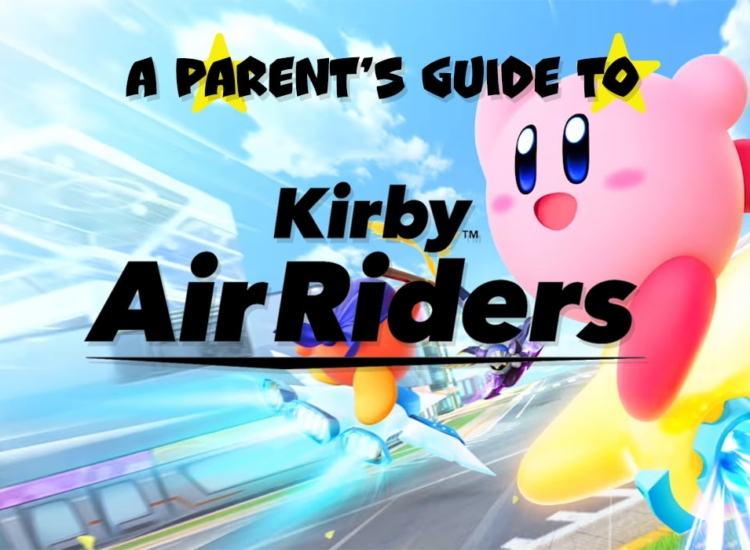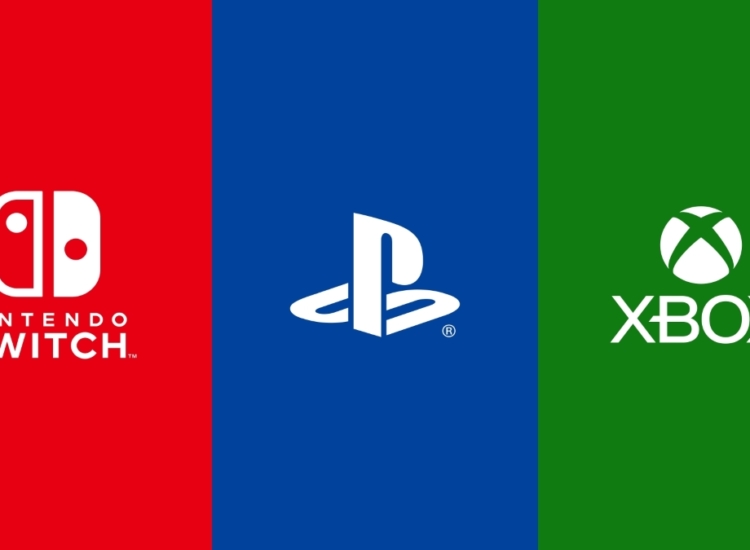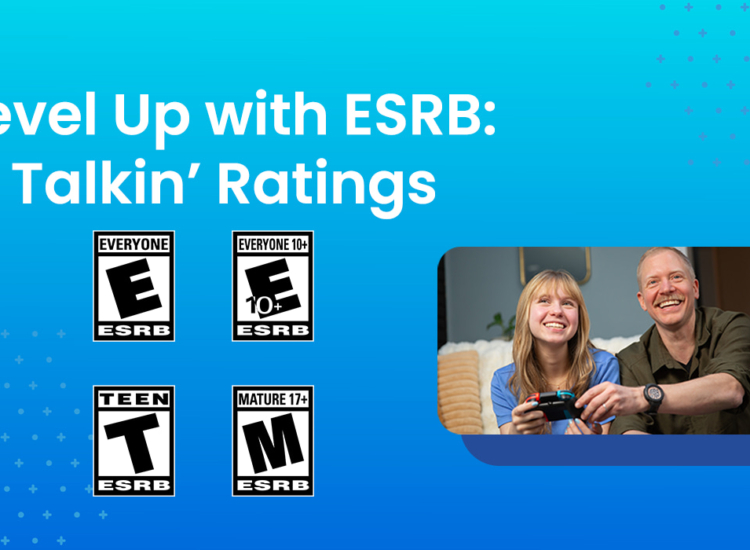Gaming Enabled: Helping Kids With Disabilities Enjoy Video Games
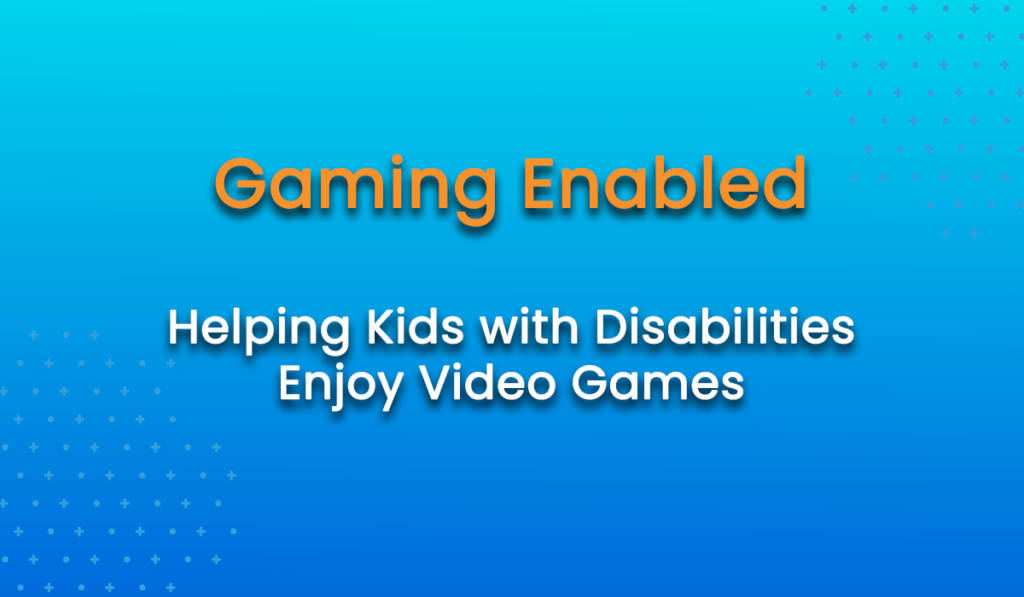
Growing up in the 90s, I was fascinated by video games. The lights and sounds of the arcade cabinets at the local pizza joint would suck me in like quicksand, pulling on my imagination until I simply had to play them. But my parents would shrug and explain that my wheelchair simply couldn’t get close enough to reach the buttons. This justified skepticism went double whenever I asked my parents for a Game Boy. Afterall, someone with severe cerebral palsy such as myself often can’t use their hands at all, so how was I going to pick up a Game Boy and start playing? But life finds a way, or in this case, Grandma. I can still remember the conversation. My dad was determined that my Grandma not waste her money just because my brother had a Game Boy and I was feeling left out. But no, she said, “He wants to try, and I want to help him.”
$70 and one trip to Toys“R”Us later, I was the proud owner of a red Game Boy Pocket. I know it’s corny to say, but that Game Boy changed my life. It also gave me a form of therapy. Prior to starting to play games, I couldn’t really wrap my hands around a pencil well enough to sign my name. My Game Boy acted as a first step in the therapy process that increased my dexterity and made it possible to learn basic fine-motor skills. But that wasn’t the end of how gaming helped me.
Over the next decade plus, gaming was both a hobby and a therapy for me. It gave me a touchpoint with non-disabled children to make friends, and it helped me through some of the toughest transitions of my childhood: moving countries, the death of a best friend, and many of the regular day-to-day things that make living with a disability challenging. Since then, I’ve turned my love for gaming into a full-time calling. The joke around my house is that for years, my parents were quite clear, “You will not spend the rest of your life playing video games.” Well, two college degrees, dozens of game credits on my resume, and hundreds of articles on gaming with a disability later, much to my parents’ amusement, I do spend most of my time playing and writing about games, and as an adult, gaming has broadened my horizons far beyond what that little boy who couldn’t reach the arcade cabinet would have thought possible.
Video Games Are for Everyone
Parents often reach out to me and ask, “Can my child with special needs game?” These days, anybody can enjoy video games. It’s just a matter of knowing what questions to ask and being aware of the options out there when it comes to making games accessible. Before I recommend any resources, the first thing I tell parents is that they shouldn’t be looking for an “accessible” game. They should be looking for a game that their child enjoys. Afterall, if a game gives a child enjoyment, it doesn’t matter if they’re actually able to beat it.
“He wants to try, and I want to help him.”
A perfect example of this in my own life are the early Assassin’s Creed games. I love the setting and the story, but the gameplay was a challenge for me. However, when the multiplayer mode in Assassin’s Creed Brotherhood released, a whole new world of competitive entertainment opened up for me. This was not only a game mode I could enjoy, but a game mode that I could excel at against other able-bodied players. If I had simply been looking for the most accessible game, I would have missed out on these experiences, and missed out on one of my favorite multiplayer games ever created.
After that, the first thing that I always recommend is that, especially for younger kids, gaming should be a family activity. If you game with your child, you’ll have a much clearer understanding of what makes games difficult for them and what kind of games they enjoy. With this knowledge, you’ll have the inside track on understanding their needs and how to meet them. Rehabs are also a great place to start when it comes to video games. Most major children’s rehabs and children’s hospitals in the US have an assistive tech or adaptive recreation department, and many of them have actual adaptive gaming programs. In Minnesota, the program that I’ve worked with is connected with Gillette Children’s Hospital. These types of programs typically have video game systems available a few days a month for children with disabilities to come together under the supervision of parents and therapists to play games. If you’re worried about the financial commitment, this is where I would start. It will give you and your child the opportunity to experiment with which video game and video game systems are accessible without the burden of the initial financial expense.
Your Family’s Video Game Environment
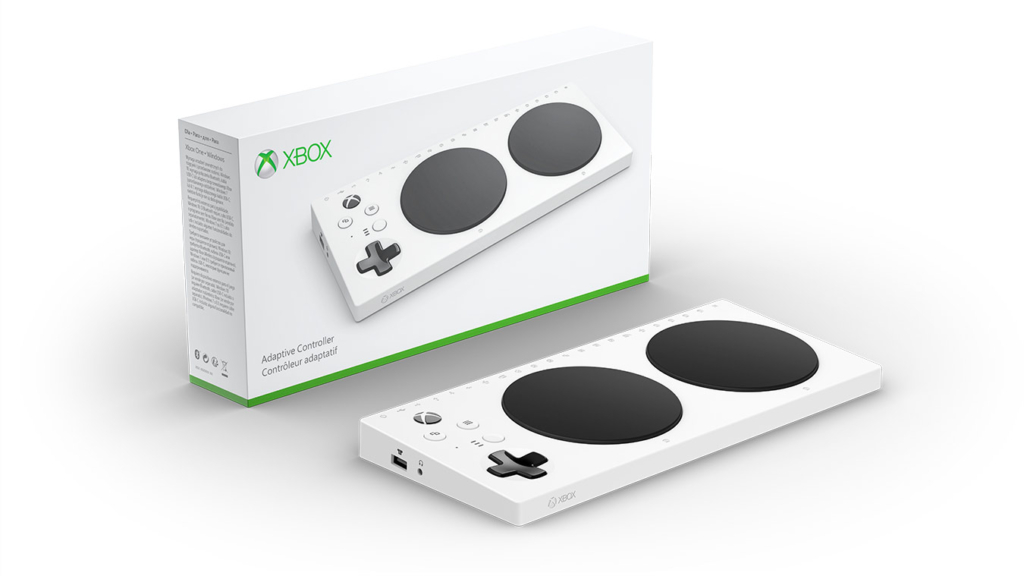
Xbox Adaptive Controller
In order to make gaming as accessible as possible, having your own system is really best. No matter which hardware you choose, Xbox, PlayStation, Nintendo, or PC, there are tons of ways to make your physical hardware accessible, although typically, I suggest that people start by looking at either the Xbox Adaptive Controller, the PlayStation Access Controller, or a completely custom solution built by the AbleGamers charity.
Once you have a system, it’s still pretty overwhelming. There are hundreds of games released each year and lots of opportunities to accidentally purchase a game you can’t play. That’s why I started my company, Can I Play That?, to review games so disabled players wouldn’t risk spending money on experiences they couldn’t enjoy. Since the mid 2000s, there has been a boom in game accessibility awareness, and there are mountains of resources to help individuals and families with disabilities to figure out what games they can play.
Both Can I Play That? and Game Accessibility Nexus provide wonderful resources for navigating this hobby. You should use these resources to research your options, and if possible, leverage the
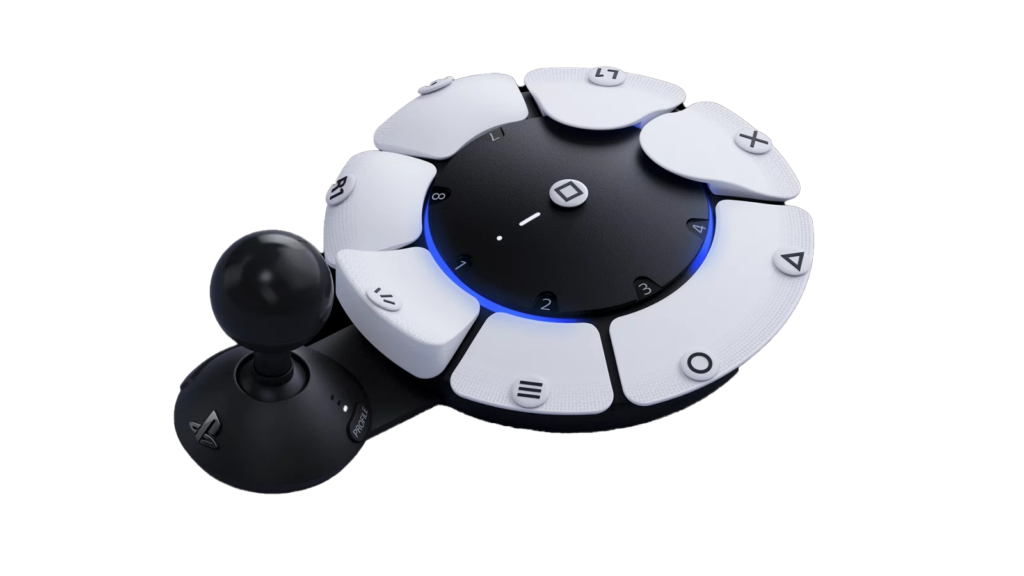
PlayStation Access Controller
disabled gaming community on social media. The game accessibility community online is full of knowledgeable experts that are often very willing and excited to answer questions. Game developers too have gotten better at advertising the accessibility of games prior to launch. So if you’re able to do your research, finding games that your child can enjoy is a rewarding journey that is neither too complicated nor too time consuming.
More Than Just “A Game”
Even though helping your disabled child enjoy video games takes extra time and effort, it is beyond worth it. I could write another 1000 words on how gaming has improved my life both as a child and as an adult, but in brief, here are a few of the key benefits of gaming for children with disabilities.
First and foremost is community. Whether it’s split screen co-op or online multiplayer, video games are the ultimate meritocracy, where a child’s physical appearance does not affect how other people see them. I know in my own life, kids tended to treat me like I was an outsider until they saw the copy of Pokémon Yellow sticking out of the back of my Game Boy. Trading with kids on the playground or in my youth group gave me a reason to talk to others and gave me an easy avenue to making friends.
As I went through my junior high and teenage years, the biggest gift video games gave me was a sense of empowered independence. Once I was in the game’s world, I wasn’t just “the kid in the wheelchair”. I was master of my own destiny, whether that destiny was to save Princess Zelda or repel a Zerg invasion in StarCraft. Video games can never replace real world experience, but they can give disabled players a sense of accomplishment in ways they oftentimes can’t access outside of the digital world.
Even though helping your disabled child enjoy video games takes extra time and effort, it is beyond worth it.
Another benefit to this level of escapism was pain management. Whether it was the mental health challenges that came with managing my disability, or the physical pain of a therapy session, gaming provided me a wonderful distraction that dulled the pain and gave me something to focus on.
But, in my opinion, the biggest benefit of gaming for kids with disabilities is the potential career path that it will open for them later in life. As an advocate for increasing diversity in game development, as well as making games more accessible, I can say confidently that the games industry is the first industry in history that is uniquely suited to provide people with profound disabilities meaningful careers. The biggest barrier to most disabled young people getting jobs is access to the physical workspace. Game development itself is a discipline that can be done entirely remotely, making it easier for profoundly disabled young people to find exciting and fulfilling careers that compensate for their physical challenges. I encourage parents who are worried about career options for their special needs child to look at gaming not only as a hobby, but also at the various aspects of game development as a uniquely accessible and rewarding career path.
Happily, whether it’s accessible careers or the accessibility of games themselves, I can say with confidence that we are moving at full speed into a more accessible future for gaming. 15 years ago, a single colorblind filter would have been enough to cause a stir in the game industry, but today more and more developers are building robust accessibility options into their games. Even as the industry goes through turbulent times, many developers remain committed to accessibility, and you see more and more games with not only subtitles and closed captioning, but fully remappable controls, content filtering for people with phobias, and even support for external tech devices like screen readers. All this indicates that, to me at least, in the future, a disability won’t be a barrier to playing and enjoying games.

Joshua Straub is the Editor-in-Chief of Can I Play That? and the founder of AbilityPoints. Since 2012, he has been advocating for greater accessibility in games and easier access to employment for the disabled. He is a Ph.D. student in Human Factors and Ergonomics, and works as a consultant for game developers looking to make their games more accessible. He was diagnosed with Cerebral Palsy at age 1, and has used a wheelchair for mobility all his life.
